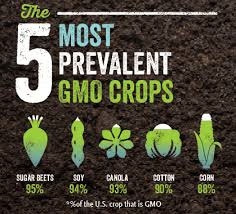Right after the election, the National Organic Standards Board met and made some big decisions organic food consumers have long wanted.
They banned the controversial and ubiquitous ingredient carrageenan from organic foods (industry is fighting back), and they banned entire technologies: cloning, nanotechnology and synthetic ingredients, called GMO 2.0. Can hydroponically grown foods be certified as organic? That decision waits for the spring meeting.
In a letter to USDA Secretary Tom Vilsack, NOSB states its position on GMO drift to organic farms. Organic farmers should be compensated by the biotech industry when GMOs contaminate their farms, they say, and USDA should lead on the issue, rather than continuing to waffle.
Read our article, GMOs Infecting Organic Crops, Will USDA Do Anything?
Stop the Pesticides!
Meanwhile, researchers say tighter regulations on pesticides are crucial to protect pollinators like bees and butterflies from extinction.
40% of pollinators are threatened with extinction globally, according to the most comprehensive global assessment, released last week. It confirms previous studies: widespread use of neonicotinoids are significantly driving wild pollinator declines.
Incredibly, the EPA acknowledges this, but has taken NO action (and is being sued) other than promising not to approve new uses of neonics until its research is completed. Neonics already on the market can still be used and EPA approved two new neonics last year. Oh, and it expanded their use to more crops, as well as the amounts that can be applied on crops.
A separate report from the USDA finds that 85% of thousands of foods testes have pesticide, herbicide and/or fungicide residues, and some foods, like strawberries, tested positive for 20 different chemicals.
Even more concerning is the trend line: in 2014 and earlier, 40-50% of foods tested were free of residues.
So, will USDA take action? No! They insist foods are safe because residues are at low levels.
Scientists disagree: the question of how multiple chemicals interact to affect human health is far from understood. For example, if you eat strawberries, what’s the impact 20 years later?
Amazingly, this data doesn’t include glyphosate residues – the most commonly used herbicide in the US!
How Will Trump Handle This?
All this is under President Obama, often criticized for allowing a “corporate takeover” of the US organic program.
Given Trump’s proclivity toward nominating pro-big business and special interests for his cabinet, this will only get worse.
Myron Ebell, in charge of the EPA transition, for example, staunchly advocates for pesticides (in addition to being a star climate change denier). And we can count on Trump’s Attorney General Senator Jeff Sessions (R-AL) to allow the Monsanto-Bayer merger to go through. Monsanto, of course, is a major donor to the GOP, and Trump owns its stock.
Trump’s 65-person rural and agriculture advisory committee is brimming with Republican heavy hitters, all donors, points out Politico.
Cornucopia, an organic watchdog, is in the midst of a federal lawsuit that charges USDA with appointing agribusiness executives to NOSB seats specifically earmarked for stakeholders that “own or operate an organic farm.”
The USDA has also ignored:
- the questionable veracity of the flood of organic imports from China, India, and other countries
- large “organic” farms that don’t abide by the law. A company that doesn’t provide pasture for dairy cows still operates and most “organic” egg producers have as many as 2 million hens in a single factory.
USDA is finally working on specific rules for organic animal welfare standards, but after they are finalized, there’s a 5-year phase-in period. And the draft rules are ridiculous: they require just 2 square feet of outdoor space for chickens, for example, and that can be on concrete.
The Republican Platform on agriculture states:
- No mandatory GMO labels: they are intrusive, expensive federal mandates on scientifically proven safe food options.
- Abolish the EPA and turn environmental regulations to the states. Any conservation by landowners should be voluntary.
- Rethink crop insurance so that no one segment is favored
- Expand trade and ensure high US standards
The Democratic Platform says:
- Invest in rural America: strengthen water, sewer and broadband infrastructure; strengthen support for young farmers and ranchers, protect family farms and expand local and regional food systems.
- Improve protection for agricultural workers from chemicals that goes beyond EPA’s Agricultural Worker Protection Standard.
- Trade deals must be transparent and not undercut American workers, compromise environmental standards or benefit a select few.
- Farms that conserve and improve natural resources will receive assistance.

